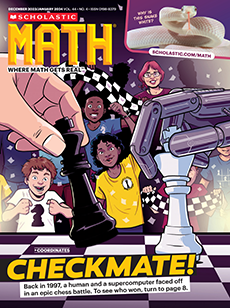Although you can’t get your own credit card until you’re 18, some parents add their kids as users to their accounts. But is it a good idea?
The main benefit of credit cards is that they offer flexibility. If you want to buy something today but don’t have the cash for it yet, credit cards make that possible. Some banks that issue credit cards encourage people to use their cards by offering rewards, such as sign-up bonuses, airline miles, or cash back for every dollar you spend.
But credit can create problems if you can’t—or forget to—pay your bill. “When I got my first credit card, I didn’t know that I had to pay anything back,” says Ben-James Brown, a financial health expert at Wells Fargo bank. He learned his lesson fast when he got his first bill!
Banks do not require you to pay the full amount owed each month, but you must at least make the minimum payment. Any remaining balance after the first 30 days will be charged a fee called interest. Today, most credit cards have an interest rate of 18% to 25%. And late payments are charged extra fees!
You can’t get a credit card until you’re 18. But some parents add their kids to their accounts. That allows the kids to use the credit cards. You may be wondering: Is that a good idea?
The main benefit of credit cards is flexibility. Say you want to buy something, but you don’t have enough cash for it. If you put it on a credit card, the bank that issued the card pays for it. You pay them back later. Some banks even offer rewards to encourage people to use their cards. They might give you airline miles or cash back for every dollar you spend.
But credit can create problems too. “When I got my first credit card, I didn’t know that I had to pay anything back,” says Ben-James Brown. He’s a financial health expert at Wells Fargo bank. He learned his lesson fast when he got his first bill!
Banks bill credit card users for what they owe every month. They don’t require you to pay the full amount. But you must at least make a minimum payment. After 30 days, anything left unpaid will be charged a fee called interest. Today, most credit cards have interest rates of 18% to 25%. And late payments are charged extra fees!
